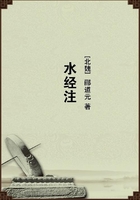Introduction of Book I
The Republic opens with a truly Greek scene-a festival in honour of the goddess Bendis which is held in the Piraeus; to this is added the promise of an equestrian torch-race in the evening. The whole work is supposed to be recited by Socrates on the day after the festival to a small party, consisting of Critias, Timaeus, Hermocrates, and another; this we learn from the first words of the Timaeus.
When the rhetorical advantage of reciting the Dialogue has been gained, the attention is not distracted by any reference to the audience; nor is the reader further reminded of the extraordinary length of the narrative. Of the numerous company, three only take any serious part in the discussion; nor are we informed whether in the evening they went to the torch-race, or talked, as in the Symposium, through the night. The manner in which the conversation has arisen is described as follows:-Socrates and his companion Glaucon are about to leave the festival when they are detained by a message from Polemarchus, who speedily appears accompanied by Adeimantus, the brother of Glaucon, and with playful violence compels them to remain, promising them not only the torch-race, but the pleasure of conversation with the young, which to Socrates is a far greater attraction. They return to the house of Cephalus, Polemarchus'father, now in extreme old age, who is found sitting upon a cushioned seat crowned for a sacrifice. 'You should come to me oftener, Socrates, for I am too old to go to you; and at my time of life, having lost other pleasures, I care the more for conversation.'Socrates asks him what he thinks of age, to which the old man replies, that the sorrows and discontents of age are to be attributed to the tempers of men, and that age is a time of peace in which the tyranny of the passions is no longer felt. Yes, replies Socrates, but the world will say, Cephalus, that you are happy in old age because you are rich. 'And there is something in what they say, Socrates, but not so much as they imagine-as Themistocles replied to the Seriphian, "Neither you, if you had been an Athenian, nor I, if I had been a Seriphian, would ever have been famous," I might in like manner reply to you, Neither a good poor man can be happy in age, nor yet a bad rich man.'Socrates remarks that Cephalus appears not to care about riches, a quality which he ascribes to his having inherited, not acquired them, and would like to know what he considers to be the chief advantage of them. Cephalus answers that when you are old the belief in the world below grows upon you, and then to have done justice and never to have been compelled to do injustice through poverty, and never to have deceived anyone, are felt to be unspeakable blessings. Socrates, who is evidently preparing for an argument, next asks, What is the meaning of the word justice? To tell the truth and pay your debts? No more than this? Or must we admit exceptions? Ought I, for example, to put back into the hands of my friend, who has gone mad, the sword which I borrowed of him when he was in his right mind? 'There must be exceptions.''And yet,'says Polemarchus, 'the definition which has been given has the authority of Simonides.'Here Cephalus retires to look after the sacrifices, and bequeaths, as Socrates facetiously remarks, the possession of the argument to his heir, Polemarchus…
The description of old age is finished, and Plato, as his manner is, has touched the key-note of the whole work in asking for the definition of justice, first suggesting the question which Glaucon afterwards pursues respecting external goods, and preparing for the concluding mythus of the world below in the slight allusion of Cephalus. The portrait of the just man is a natural frontispiece or introduction to the long discourse which follows, and may perhaps imply that in all our perplexity about the nature of justice, there is no difficulty in discerning 'who is a just man.'The first explanation has been supported by a saying of Simonides; and now Socrates has a mind to show that the resolution of justice into two unconnected precepts, which have no common principle, fails to satisfy the demands of dialectic.
…He proceeds: What did Simonides mean by this saying of his? Did he mean that I was to give back arms to a madman? 'No, not in that case, not if the parties are friends, and evil would result. He meant that you were to do what was proper, good to friends and harm to enemies.'Every act does something to somebody; and following this analogy, Socrates asks, What is this due and proper thing which justice does, and to whom? He is answered that justice does good to friends and harm to enemies. But in what way good or harm? 'In making alliances with the one, and going to war with the other.'Then in time of peace what is the good of justice? The answer is that justice is of use in contracts, and contracts are money partnerships. Yes; but how in such partnerships is the just man of more use than any other man? 'When you want to have money safely kept and not used.'Then justice will be useful when money is useless. And there is another difficulty: justice, like the art of war or any other art, must be of opposites, good at attack as well as at defence, at stealing as well as at guarding. But then justice is a thief, though a hero notwithstanding, like Autolycus, the Homeric hero, who was 'excellent above all men in theft and perjury' -to such a pass have you and Homer and Simonides brought us; though I do not forget that the thieving must be for the good of friends and the harm of enemies. And still there arises another question: Are friends to be interpreted as real or seeming; enemies as real or seeming? And are our friends to be only the good, and our enemies to be the evil? The answer is, that we must do good to our seeming and real good friends, and evil to our seeming and real evil enemies-good to the good, evil to the evil. But ought we to render evil for evil at all, when to do so will only make men more evil? Can justice produce injustice any more than the art of horsemanship can make bad horsemen, or heat produce cold? The final conclusion is, that no sage or poet ever said that the just return evil for evil; this was a maxim of some rich and mighty man, Periander, Perdiccas, or Ismenias the Theban (about B.C. 398-381)…
Thus the first stage of aphoristic or unconscious morality is shown to be inadequate to the wants of the age; the authority of the poets is set aside, and through the winding mazes of dialectic we make an approach to the Christian precept of forgiveness of injuries. Similar words are applied by the Persian mystic poet to the Divine being when the questioning spirit is stirred within him:-'If because I do evil, Thou punishest me by evil, what is the difference between Thee and me?' In this both Plato and Kheyam rise above the level of many Christian (?) theologians. The first definition of justice easily passes into the second; for the simple words 'to speak the truth and pay your debts'is substituted the more abstract 'to do good to your friends and harm to your enemies.'Either of these explanations gives a sufficient rule of life for plain men, but they both fall short of the precision of philosophy. We may note in passing the antiquity of casuistry, which not only arises out of the conflict of established principles in particular cases, but also out of the effort to attain them, and is prior as well as posterior to our fundamental notions of morality. The 'interrogation'of moral ideas; the appeal to the authority of Homer; the conclusion that the maxim, 'Do good to your friends and harm to your enemies,'being erroneous, could not have been the word of any great man, are all of them very characteristic of the Platonic Socrates.
…Here Thrasymachus, who has made several attempts to interrupt, but has hitherto been kept in order by the company, takes advantage of a pause and rushes into the arena, beginning, like a savage animal, with a roar. 'Socrates,'he says, 'what folly is this?-Why do you agree to be vanquished by one another in a pretended argument?'He then prohibits all the ordinary definitions of justice; to which Socrates replies that he cannot tell how many twelve is, if he is forbidden to say 2 x 6, or 3 x 4, or 6 x 2, or 4 x 3. At first Thrasymachus is reluctant to argue; but at length, with a promise of payment on the part of the company and of praise from Socrates, he is induced to open the game. 'Listen,'he says, 'my answer is that might is right, justice the interest of the stronger: now praise me.'Let me understand you first. Do you mean that because Polydamas the wrestler, who is stronger than we are, finds the eating of beef for his interest, the eating of beef is also for our interest, who are not so strong? Thrasymachus is indignant at the illustration, and in pompous words, apparently intended to restore dignity to the argument, he explains his meaning to be that the rulers make laws for their own interests. But suppose, says Socrates, that the ruler or stronger makes a mistake-then the interest of the stronger is not his interest. Thrasymachus is saved from this speedy downfall by his disciple Cleitophon, who introduces the word 'thinks;' -not the actual interest of the ruler, but what he thinks or what seems to be his interest, is justice. The contradiction is escaped by the unmeaning evasion: for though his real and apparent interests may differ, what the ruler thinks to be his interest will always remain what he thinks to be his interest.
Of course this was not the original assertion, nor is the new interpretation accepted by Thrasymachus himself. But Socrates is not disposed to quarrel about words, if, as he significantly insinuates, his adversary has changed his mind. In what follows Thrasymachus does in fact withdraw his admission that the ruler may make a mistake, for he affirms that the ruler as a ruler is infallible. Socrates is quite ready to accept the new position, which he equally turns against Thrasymachus by the help of the analogy of the arts. Every art or science has an interest, but this interest is to be distinguished from the accidental interest of the artist, and is only concerned with the good of the things or persons which come under the art. And justice has an interest which is the interest not of the ruler or judge, but of those who come under his sway.
Thrasymachus is on the brink of the inevitable conclusion, when he makes a bold diversion. 'Tell me, Socrates,'he says, 'have you a nurse?'What a question! Why do you ask? 'Because, if you have, she neglects you and lets you go about drivelling, and has not even taught you to know the shepherd from the sheep. For you fancy that shepherds and rulers never think of their own interest, but only of their sheep or subjects, whereas the truth is that they fatten them for their use, sheep and subjects alike. And experience proves that in every relation of life the just man is the loser and the unjust the gainer, especially where injustice is on the grand scale, which is quite another thing from the petty rogueries of swindlers and burglars and robbers of temples. The language of men proves this-our 'gracious'and 'blessed'tyrant and the like-all which tends to show (1) that justice is the interest of the stronger; and (2) that injustice is more profitable and also stronger than justice.'
Thrasymachus, who is better at a speech than at a close argument, having deluged the company with words, has a mind to escape. But the others will not let him go, and Socrates adds a humble but earnest request that he will not desert them at such a crisis of their fate. 'And what can I do more for you?'he says; 'would you have me put the words bodily into your souls?'God forbid! replies Socrates; but we want you to be consistent in the use of terms, and not to employ 'physician'in an exact sense, and then again 'shepherd'or 'ruler'in an inexact,-if the words are strictly taken, the ruler and the shepherd look only to the good of their people or flocks and not to their own: whereas you insist that rulers are solely actuated by love of office. 'No doubt about it,'replies Thrasymachus. Then why are they paid? Is not the reason, that their interest is not comprehended in their art, and is therefore the concern of another art, the art of pay, which is common to the arts in general, and therefore not identical with any one of them? Nor would any man be a ruler unless he were induced by the hope of reward or the fear of punishment;-the reward is money or honour, the punishment is the necessity of being ruled by a man worse than himself. And if a State (or Church) were composed entirely of good men, they would be affected by the last motive only; and there would be as much 'nolo episcopari'as there is at present of the opposite…
The satire on existing governments is heightened by the simple and apparently incidental manner in which the last remark is introduced. There is a similar irony in the argument that the governors of mankind do not like being in office, and that therefore they demand pay.
…Enough of this: the other assertion of Thrasymachus is far more important-that the unjust life is more gainful than the just. Now, as you and I, Glaucon, are not convinced by him, we must reply to him; but if we try to compare their respective gains we shall want a judge to decide for us; we had better therefore proceed by making mutual admissions of the truth to one another.
Thrasymachus had asserted that perfect injustice was more gainful than perfect justice, and after a little hesitation he is induced by Socrates to admit the still greater paradox that injustice is virtue and justice vice. Socrates praises his frankness, and assumes the attitude of one whose only wish is to understand the meaning of his opponents. At the same time he is weaving a net in which Thrasymachus is finally enclosed. The admission is elicited from him that the just man seeks to gain an advantage over the unjust only, but not over the just, while the unjust would gain an advantage over either. Socrates, in order to test this statement, employs once more the favourite analogy of the arts. The musician, doctor, skilled artist of any sort, does not seek to gain more than the skilled, but only more than the unskilled (that is to say, he works up to a rule, standard, law, and does not exceed it), whereas the unskilled makes random efforts at excess. Thus the skilled falls on the side of the good, and the unskilled on the side of the evil, and the just is the skilled, and the unjust is the unskilled.
There was great difficulty in bringing Thrasymachus to the point; the day was hot and he was streaming with perspiration, and for the first time in his life he was seen to blush. But his other thesis that injustice was stronger than justice has not yet been refuted, and Socrates now proceeds to the consideration of this, which, with the assistance of Thrasymachus, he hopes to clear up; the latter is at first churlish, but in the judicious hands of Socrates is soon restored to good-humour: Is there not honour among thieves? Is not the strength of injustice only a remnant of justice? Is not absolute injustice absolute weakness also? A house that is divided against itself cannot stand; two men who quarrel detract from one another's strength, and he who is at war with himself is the enemy of himself and the gods. Not wickedness therefore, but semi-wickedness flourishes in states,-a remnant of good is needed in order to make union in action possible,-there is no kingdom of evil in this world.
Another question has not been answered: Is the just or the unjust the happier? To this we reply, that every art has an end and an excellence or virtue by which the end is accomplished. And is not the end of the soul happiness, and justice the excellence of the soul by which happiness is attained? Justice and happiness being thus shown to be inseparable, the question whether the just or the unjust is the happier has disappeared.
Thrasymachus replies: 'Let this be your entertainment, Socrates, at the festival of Bendis.'Yes; and a very good entertainment with which your kindness has supplied me, now that you have left off scolding. And yet not a good entertainment-but that was my own fault, for I tasted of too many things. First of all the nature of justice was the subject of our enquiry, and then whether justice is virtue and wisdom, or evil and folly; and then the comparative advantages of just and unjust: and the sum of all is that I know not what justice is; how then shall I know whether the just is happy or not?…
Thus the sophistical fabric has been demolished, chiefly by appealing to the analogy of the arts. 'Justice is like the arts (1) in having no external interest, and (2) in not aiming at excess, and (3) justice is to happiness what the implement of the workman is to his work.'At this the modern reader is apt to stumble, because he forgets that Plato is writing in an age when the arts and the virtues, like the moral and intellectual faculties, were still undistinguished. Among early enquirers into the nature of human action the arts helped to fill up the void of speculation; and at first the comparison of the arts and the virtues was not perceived by them to be fallacious. They only saw the points of agreement in them and not the points of difference. Virtue, like art, must take means to an end; good manners are both an art and a virtue; character is naturally described under the image of a statue; and there are many other figures of speech which are readily transferred from art to morals. The next generation cleared up these perplexities; or at least supplied after ages with a further analysis of them. The contemporaries of Plato were in a state of transition, and had not yet fully realized the common-sense distinction of Aristotle, that 'virtue is concerned with action, art with production'(Nic. Eth.), or that 'virtue implies intention and constancy of purpose,'whereas 'art requires knowledge only'. And yet in the absurdities which follow from some uses of the analogy, there seems to be an intimation conveyed that virtue is more than art. This is implied in the reductio ad absurdum that 'justice is a thief,'and in the dissatisfaction which Socrates expresses at the final result.
The expression 'an art of pay'which is described as 'common to all the arts'is not in accordance with the ordinary use of language. Nor is it employed elsewhere either by Plato or by any other Greek writer. It is suggested by the argument, and seems to extend the conception of art to doing as well as making. Another flaw or inaccuracy of language may be noted in the words 'men who are injured are made more unjust.'For those who are injured are not necessarily made worse, but only harmed or ill-treated.
The second of the three arguments, 'that the just does not aim at excess,'has a real meaning, though wrapped up in an enigmatical form. That the good is of the nature of the finite is a peculiarly Hellenic sentiment, which may be compared with the language of those modern writers who speak of virtue as fitness, and of freedom as obedience to law. The mathematical or logical notion of limit easily passes into an ethical one, and even finds a mythological expression in the conception of envy (Greek). Ideas of measure, equality, order, unity, proportion, still linger in the writings of moralists; and the true spirit of the fine arts is better conveyed by such terms than by superlatives.
'When workmen strive to do better than well, They do confound their skill in covetousness.'(King John.)
The harmony of the soul and body, and of the parts of the soul with one another, a harmony 'fairer than that of musical notes,'is the true Hellenic mode of conceiving the perfection of human nature.
In what may be called the epilogue of the discussion with Thrasymachus, Plato argues that evil is not a principle of strength, but of discord and dissolution, just touching the question which has been often treated in modern times by theologians and philosophers, of the negative nature of evil. In the last argument we trace the germ of the Aristotelian doctrine of an end and a virtue directed towards the end, which again is suggested by the arts. The final reconcilement of justice and happiness and the identity of the individual and the State are also intimated. Socrates reassumes the character of a 'know-nothing;'at the same time he appears to be not wholly satisfied with the manner in which the argument has been conducted. Nothing is concluded; but the tendency of the dialectical process, here as always, is to enlarge our conception of ideas, and to widen their application to human life.















